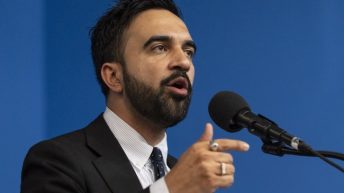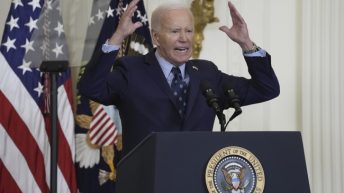President Donald Trump and Japan Prime Minister Sanae Takaichi on Tuesday signed a framework agreement for securing the supply of critical minerals and rare earths through mining and processing, the White House said in a statement. This move frames a clear, pro-growth strategy to break dependence on adversaries, shore up supply chains, and deepen U.S.-Japan cooperation on resources vital to industry and defense.
The agreement is practical and strategic, and it delivers on the basics voters care about: security, jobs, and American industry. For years Washington watched critical mineral supply chains slip into the hands of rivals who use leverage against democracies. This framework changes the game by making reliable access to minerals an explicit priority between two like-minded nations.
Securing critical minerals and rare earths is not a feel-good project—it’s a national security priority. These materials power everything from electric vehicles and consumer electronics to missile guidance and radar. When our supply comes from potentially hostile or unreliable sources, our military readiness and economic resilience are at risk, so moving processing and mining into trusted alliances is simply common-sense defense policy.
There is also an economic payoff. Mining, processing, and related infrastructure create high-paying manufacturing and technical jobs at home. By encouraging investment and streamlined standards with Japan, the agreement aims to jump-start projects that had been stranded by red tape, lack of capital, or policy uncertainty. That combination of private capital and government support can revitalize regions left behind by past trade and technology shifts.
Working with Japan is smart politics and smart policy. Japan brings advanced technology, large-scale capital, and a shared interest in keeping critical supply chains free of coercive actors. Partnering reduces duplication, spreads investment risk, and helps build integrated supply routes across friendly borders instead of relying on a single dominant supplier. For Americans, that means more predictable prices and fewer strategic surprises.
Trump’s approach emphasizes results over slogans. Rather than relying on vague promises, this framework lays out mining and processing as covered areas, signaling real, actionable cooperation. That clarity will help private-sector players move faster because they can plan around a predictable policy environment and coordinated diplomatic backing.
Regulatory certainty will matter a lot. Clear rules and mutual recognition of environmental and labor standards can speed project timelines without sacrificing oversight. The point is to remove needless barriers while maintaining responsible stewardship—get mines and processors online where they meet modern standards and serve national interests instead of foreign whims.
The White House framing also sends a wider message to allies and competitors alike: democracies will build resilient supply chains and support industrial capacity where it counts. This is not just about resources, it is about shaping a global economic order that favors freedom, private enterprise, and strategic independence. That message is particularly important as technology races and geopolitical tensions intensify.
Markets will watch how this framework translates into permits, financing, and joint ventures. If Washington follows through with incentives, streamlined permitting, and export controls that favor trusted partners, companies will have the confidence to invest at scale. That kind of follow-through turns diplomatic declarations into real factories, mines, and jobs in the United States and allied countries.
On the political side, this agreement offers a clear contrast in priorities. It is a policy rooted in national strength, economic opportunity, and pragmatic alliances rather than dependence or appeasement. Voters who want tough but constructive foreign policy will recognize that securing critical minerals is part of a broader plan to keep American industry competitive and our military prepared.
Ultimately this framework between President Trump and Prime Minister Takaichi is a commitment to action: secure supplies, expand processing capacity, and link allied markets so democracies do not cede strategic materials to rivals. It is a reminder that national security and economic prosperity are connected, and that smart partnerships can deliver both.




Add comment